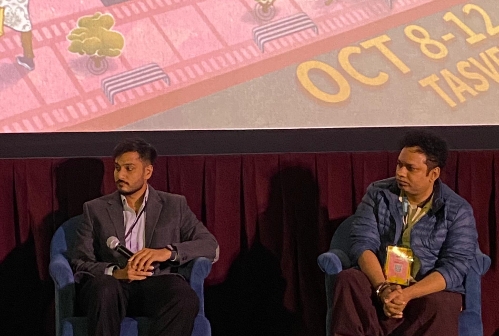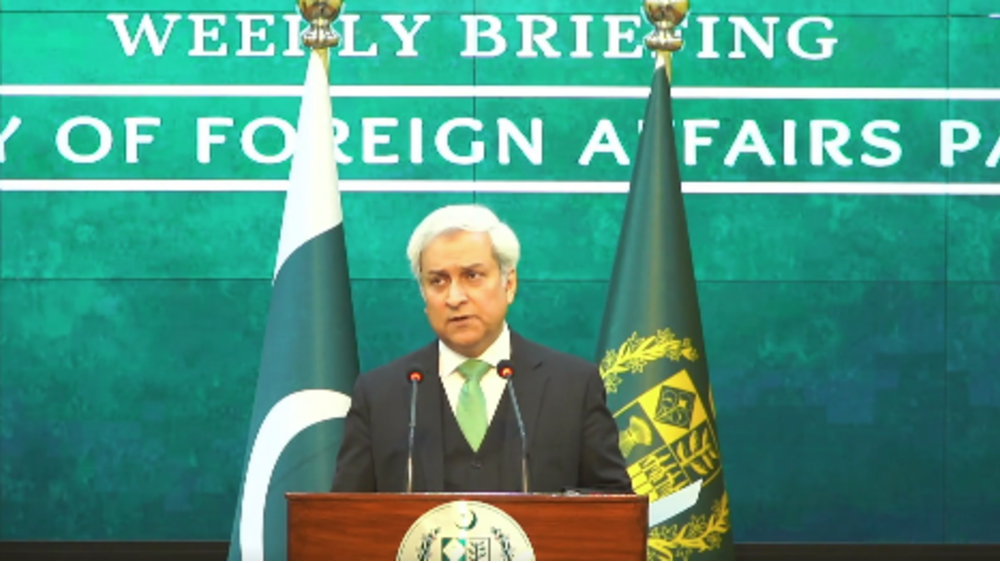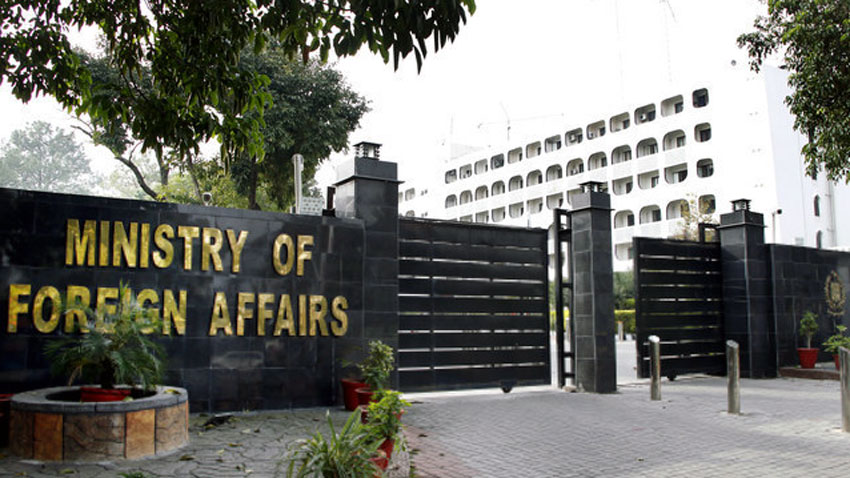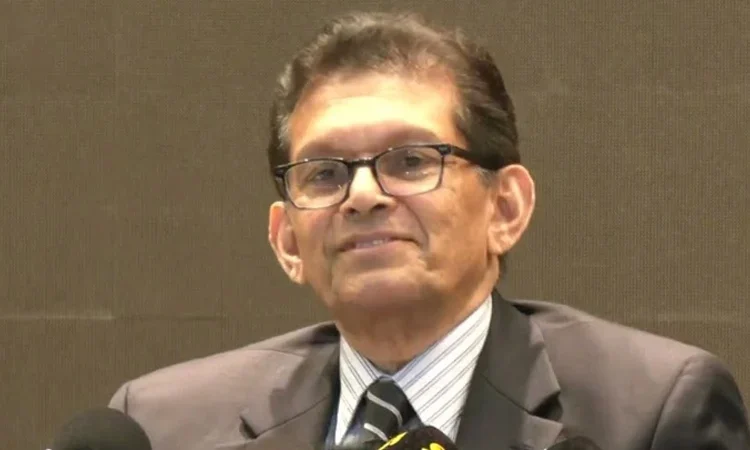
Pakistani filmmaker Sheryar Ali (R) gestures during an event in Islamabad on October 26. (Handout/APP/File)
ISLAMABAD: Pakistan’s independent film scene is making global headlines once again, with short films A Door to My Memory (Yaadan de Boohay) and Toxicity earning international acclaim.
A Door to My Memory, a Punjabi sci-fi romantic drama directed by Sheryar Ali and produced by Suhail Ahmad, had its world premiere at the Tasveer Film Festival in Seattle — the only Oscar-qualifying South Asian festival in the world.
Following its success in the US, the film has been officially selected at multiple Indian festivals, including the Bollywood International Film Festival, the International Kolkata Short Film Festival, and the Global Taj International Film Festival, where it is currently a semi-finalist.
Meanwhile, the filmmakers’ second project, Toxicity, which focuses on Pakistan’s smog crisis, continues to gain international attention. Co-directed by Suhail Ahmad and Sheryar Ali, the short film recently premiered at the Festival Internazionale Nebrodi Cinema Doc in Sicily, Italy.
Both films are a source of pride, but their success opens up a much larger conversation: What does it really take for Pakistani filmmakers to take their stories international?
The struggle of independent filmmaking
Independent filmmaking in Pakistan has always been an act of resilience. With limited resources, scattered infrastructure, and an audience still hesitant to embrace experimental cinema, even completing a short film is a major achievement.
Then comes distribution, the real test. It can take years for local filmmakers to see their films on screen, if they ever do. Without the support of a major production house, getting a film in front of an audience is nearly impossible.
By no means is this a critique of a broken system, but a look at what it takes to survive in it. Pakistan’s film scene has seen its share of ups and downs. With Bollywood off local screens and Hollywood still not our main source of entertainment, the revival of local cinema remains slow and uncertain.
Most film graduates today enter the industry without knowing how to position or distribute their work. Investors avoid taking risks on new talent, leaving independent filmmakers with scarce funds and no real marketing plan.
To better understand this struggle, Pakistan TV Digital spoke with some of the most promising talent in indie filmmaking to get a glimpse of what goes on behind the scenes.
What it really takes
“When people talk about hurdles, funding always comes up, and rightly so,” says director Sheryar Ali.
“But for me, the real challenge was learning the distribution process itself. I had to travel abroad and talk to distributors and producers just to understand how it works, despite being a film school graduate who’s been in the industry for years.”
It isn’t about gatekeeping, he explains, but the lack of structure.
“We don’t have a stable industry. No one really knows the way forward. That can be very discouraging for young filmmakers. I hope people returning from festivals share their learnings more openly. I know I will.”
No roadmap
Another example of Pakistani cinema breaking through internationally is Jujji, a feature film recently acquired by the American distribution company Buffalo 8. Eifa Ahmad, the film’s head of distribution, explained how it reached this milestone:
“There’s no clear roadmap for taking an independent film international. You’re mostly figuring it out as you go, who to reach out to, what materials are needed, how contracts work.”
Guidance within Pakistan is limited, leaving filmmakers to learn through trial and error. “There isn’t much local guidance for that process,” she says.
She adds, “When we were working on Jujji, every step was a mix of research, intuition, and persistence. Another big challenge is confidence; we underestimate the strength of our own stories.”
Ahmad emphasizes the uniqueness of Pakistani narratives. “Our stories are rooted in experiences no one else can replicate. Once we start owning that instead of trying to fit external molds, things will shift.”
The way forward
Despite the hurdles, Pakistan’s indie filmmakers are proving their stories can reach international audiences. Each success story helps pave the way for the next generation, gradually building a stronger presence for local cinema on the global stage.
Latest News
Pakistan says Afghanistan jet crash claim 'totally untrue'
2 HOURS AGO

Pakistan advises nationals to avoid non-essential travel to Iran
3 HOURS AGO

United States and Israel launch attacks against Iran
3 HOURS AGO

OIC to campaign for Bangladesh's UNGA bid: FM Rahman
5 HOURS AGO

Canada says relocating some diplomatic staff from Tel Aviv
6 HOURS AGO

